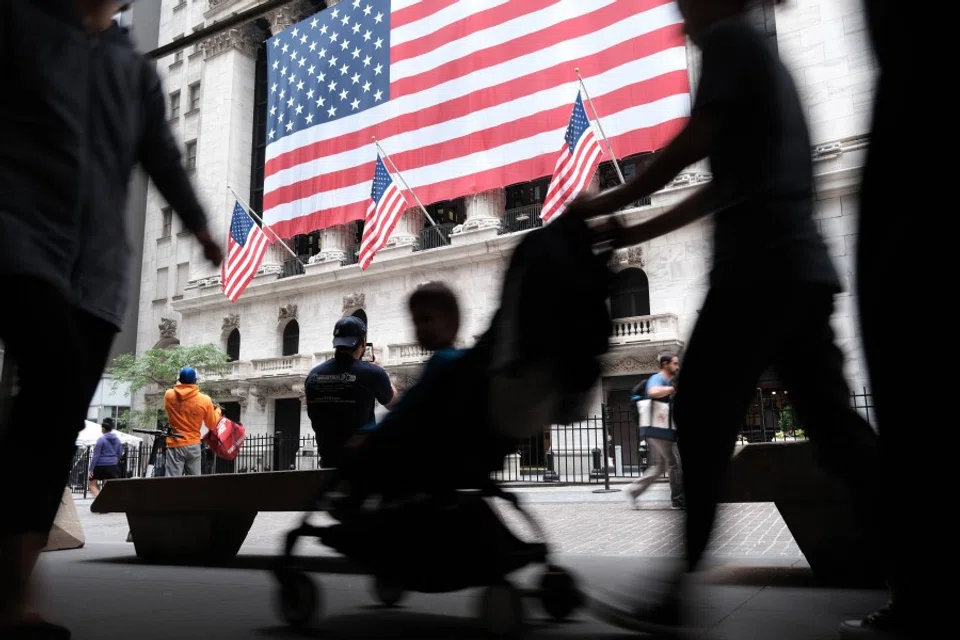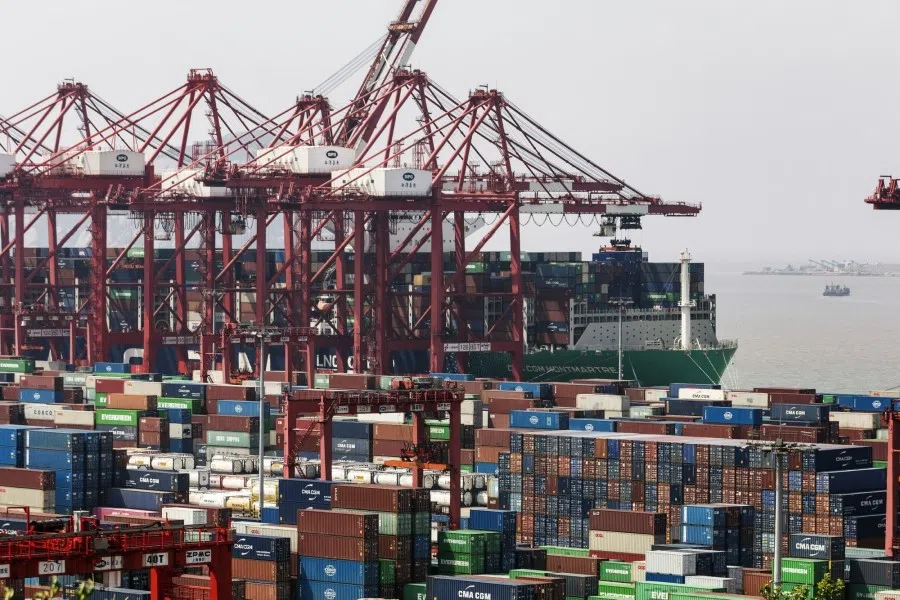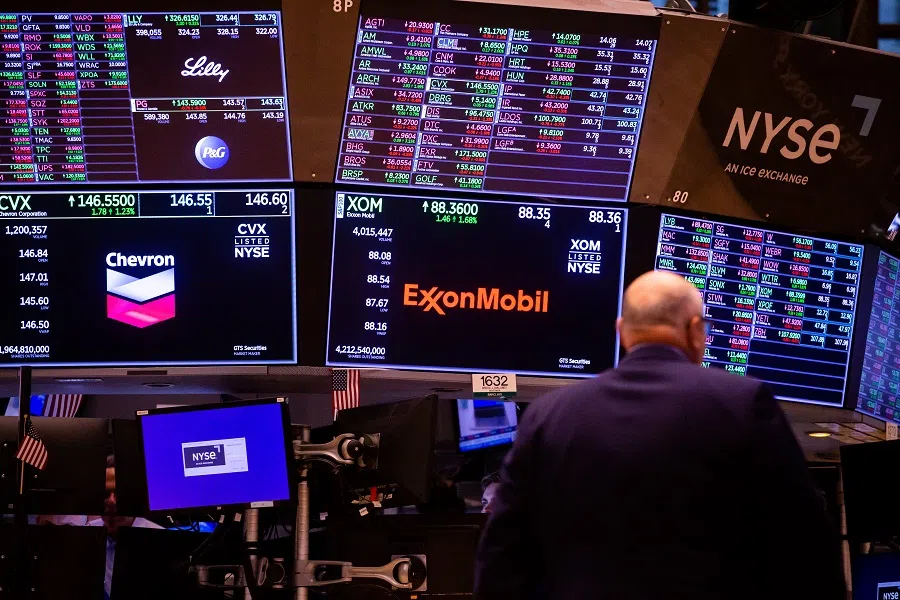Could the end of the China-US trade war be near?
With the latest virtual call between Chinese Vice-Premier Liu He and US Treasury Secretary Janet Yellen, observers are anticipating that the US will lift the Trump-era punitive tariffs on China and de-escalate the four-year-long China-US trade war that has hurt both economies. Zaobao correspondent Yang Danxu looks at how the situation might develop and how Biden might play his cards.

A virtual call between Chinese Vice-Premier Liu He and US Treasury Secretary Janet Yellen on 5 July is the latest sign that there may be movement on the China-US trade war.
Chinese state media reported that the two sides discussed issues such as the global economic outlook and the stability of global supply chains. China also called for the US's fair treatment of Chinese companies and the lifting of additional tariffs and sanctions.
While the US readout of the meeting did not mention tariffs, it stated that both sides discussed macroeconomic and financial developments in the US and China, the global economic outlook amid rising commodity prices, and food security challenges. In addition, Yellen "frankly raised issues of concern including the impact of Russia's war against Ukraine on the global economy and unfair, non-market PRC economic practices".
No winners in a trade war
The dialogue comes close after news that the Biden administration might lift Trump-era tariffs on China, with US media such as Bloomberg and The Wall Street Journal reporting that US President Joe Biden might make an announcement this week.

The punitive tariffs on China was a trademark move by former US President Donald Trump to constrain China. Four years since the biggest trade war in history began, the US has not met its objectives; in fact, neither side has benefited.
Furthermore, the trade war has not changed China's economic model. On the contrary, when pushed into a corner, Beijing channelled more resources into enhancing its technology and other sectors.
...Biden will need to find the right opportunity to end the damaging tariff policies without being seen as taking a soft stance on China.
The US remains highly reliant on Chinese products; its trade deficit with China last year widened to US$355.3 billion, second only to the record US$418.2 billion in 2018. China also retaliated by imposing tariffs on the US, despite dealing with losses as companies diversified its investments and shifted supply chains to Southeast Asia.
Economists agree that there are no winners in a trade war, and as the party who initiated it, the US will have to pay the price of de-escalating it and lifting tariffs.
Finding the right opportunity
In 2020, during his presidential campaign, Biden stated that China should take responsibility for its unfair trade policies, but he was against unilaterally imposing additional tariffs. In other words, Biden was clear about the negative impact of a trade war and was doubtful that imposing tariffs would meet Trump's objectives.

However, with anti-China sentiment in the US, it is only now, after 18 months in the White House, that Biden has started to relent on the issue. As a seasoned politician, Biden is alive to the reality that it is only politically correct to be anti-China.
...tackling the most severe inflation in 40 years, easing economic hardship and quelling public anger have become more politically expedient than being anti-China.
Biden will need to find the right opportunity to end the damaging tariff policies without being seen as taking a soft stance on China.
High inflation in the US following the Russia-Ukraine war has presented Biden with an opportunity to do just that. As the midterm elections in November approach, tackling the most severe inflation in 40 years, easing economic hardship and quelling public anger have become more politically expedient than being anti-China.
The US's consumer price index in May increased 8.6% year-on-year, hitting a 40-year high. The spectre of the Ukraine war and skyrocketing inflation have shaken market confidence, with the US stock market falling 20% from its January high.
Coupled with the US Federal Reserve's accelerated interest rate hikes, fears that the US economy might fall into stagflation have increased. American business groups and economists have urged the government to ease some import tariffs.

However, the White House has not made up its mind and there is a clear rift within the government as to whether tariffs should be lifted. Yellen and US Secretary of Commerce Gina Raimondo advocate lifting tariffs to combat inflation and protect the US economy. US Trade Representative Katherine Tai, however, prefers to keep tariffs on China as leverage to maintain pressure on the country.
Strategic competition will remain
Yellen and Liu's talk could be the final conversation between the two sides before the respective leaders make the call. The use of diplomatic politesse such as "candid" and "frank" to describe the meeting shows that both parties had several disagreements.
Nevertheless, Beijing will most likely be receptive if Biden does announce the lifting of tariffs, which would be an important step in easing China-US trade tensions. But even so, this does not mean that Washington has changed its assessment of Beijing's "unfair" economic practices.
...if the world's two largest economies can stop taking down each other through trade, that would still be a good thing for the world.
Yellen had previously said that the Biden administration seeks to "reconfigure" tariffs imposed on Chinese goods during Trump's era to make them more "strategic".

Going by recent news reports, Washington could throw a one-two punch: reduce tariffs on consumer goods such as apparel and household items to benefit US consumers, and launch a new investigation into industrial subsidies and raise tariffs in strategic areas such as technology. Clearly, Washington has no intention to relax its pressure on Beijing in areas such as high technology and government subsidies.
The China-US trade war starting in 2018 was a prelude to broader confrontation between both sides. It would be difficult to reverse this rivalry over the next few decades.
Unlike the Trump administration's direct and brutal tariffs, the Biden administration is engaging in a more considered and strategic great power competition with China.
While the strategic rivalry between China and the US will not change with the removal of some tariffs, if the world's two largest economies can stop taking down each other through trade, that would still be a good thing for the world.


![[Big read] When the Arctic opens, what happens to Singapore?](https://cassette.sphdigital.com.sg/image/thinkchina/da65edebca34645c711c55e83e9877109b3c53847ebb1305573974651df1d13a)


![[Video] George Yeo: America’s deep pain — and why China won’t colonise](https://cassette.sphdigital.com.sg/image/thinkchina/15083e45d96c12390bdea6af2daf19fd9fcd875aa44a0f92796f34e3dad561cc)